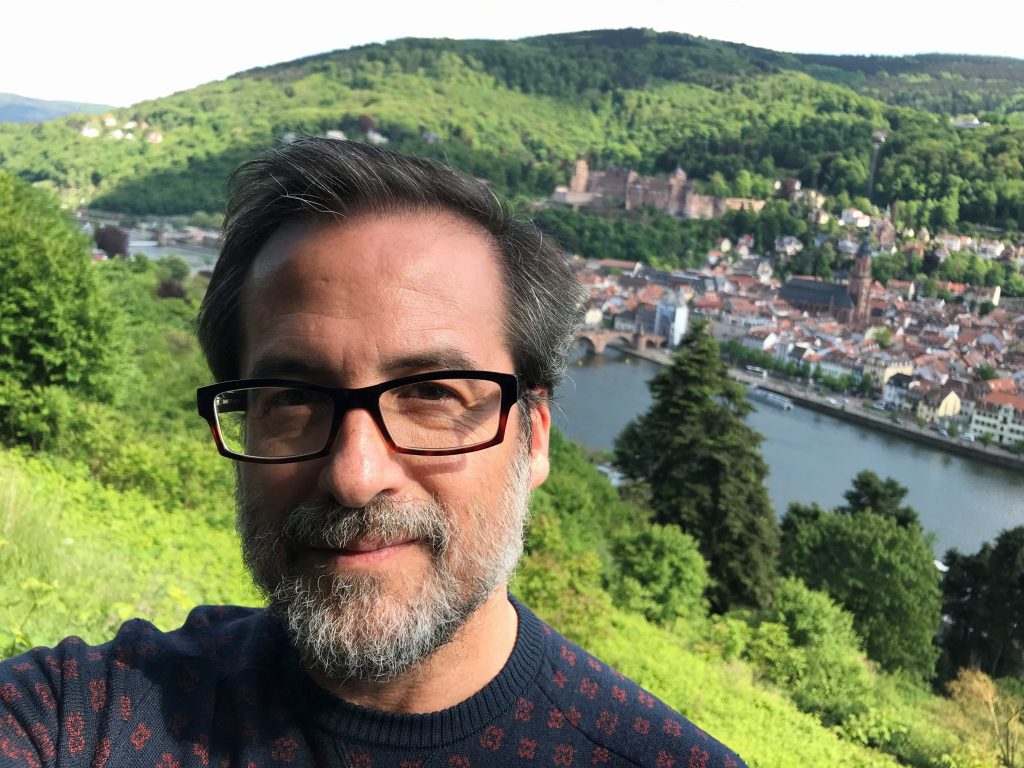Meet the Trainer – José Eduardo González-Pastor

José Eduardo González-Pastor – one of the main organisers at the upcoming EMBO Practical Course: Microbial Metagenomics: A 3600 Approach (12 – 19 June 2019) – conducts his research on the mechanisms of adaptation of microorganisms to extreme conditions using metagenomic and metatranscriptomic approaches at the Center of Astrobiology (CSIC-INTA) in Madrid, Spain.
What is the greatest benefit of the course for the scientific community?
One of the greatest difficulties in the study of microbial communities is that a large percentage of the environmental microorganisms can not be cultivated. Numerous tools, called “omics” have been developed, such as metagenomics, metatranscriptomics and metaproteomics, which allow access and study of all microorganisms in these communities. In this course, we explain most of these methodologies from theory and practice, and how to use them to properly design experiments to answer certain scientific questions related to microbial communities.
What could the techniques in this course be used for in the bigger picture?
The “omics” techniques allow us to better understand the functioning of microbial communities in their natural environment and not exclusively in laboratory conditions. In addition, one of the techniques, namely functional metagenomics, is very useful for recovering enzymes of interest in biotechnology from the microorganisms of the environment.
Are the methods used in this course unusual or new?
In the course we will explain some recent methods in functional metagenomics, such as the screening of metagenomic libraries using microfluidics techniques.
In comparison to other training environments, what do you enjoy most about teaching at EMBL?
The support from the EMBL Course and Conference team in the organisation of the course is impressive. All the logistics and other matters such as the preparation of the laboratory are handled very professionally by them. We, as trainers and organisers, only need to dedicate ourselves to coordinating the scientific part, and that leaves us time to interact with the students.
What challenges is your research field facing?
The methods of massive sequencing of DNA are generating a lot of information, but we still do not understand the function of a very high percentage of genes, which encode hypothetical or unknown proteins. Even for Escherichia coli, the best studied of all organisms, half of all the proteins encoded in its genome, around 2,000, have never been experimentally characterised. Thus, we need the combination of new and classic methods to be able to understand the molecular functioning of the organisms.
What, in your opinion, is the most crucial scientific discovery of the past 100 years?
The discovery of the structure of DNA.
What is the most interesting paper you’ve read in the past year?
GABA-modulating bacteria of the human gut microbiota. Nat Microbiol. 2019 Mar;4(3):396-403. doi: 10.1038/s41564-018-0307-3. Strandwitz P, Kim KH, Terekhova D, Liu JK, Sharma A, Levering J, McDonald D, Dietrich D, Ramadhar TR, Lekbua A, Mroue N, Liston C, Stewart EJ, Dubin MJ, Zengler K, Knight R, Gilbert JA, Clardy J, Lewis K.
Human microbiota and depression!! Microorganisms are much more relevant than we thought.
Where is science heading in your opinion?
Applied research is being favoured more than basic research, and it is a serious mistake, since much of the advances in applied science have their origin in basic research. The scientific community faces very complicated challenges in applied science without having solved many basic questions about the functioning of organisms. How can we undertake the search for new tools to fight pathogenic microorganisms if we still do not know the function of a large majority of their proteins?
What was your first ever job?
Postdoctoral position at Harvard University, Department of Molecular and Cellular Biology. Cambridge, MA, USA.
If you weren’t a scientist, what would you be?
Architect, musician or chef, in this order.
What is the strangest or funniest thing that has ever happened in a course?
It was not so funny but strange. In the first course that I collaborated as a trainer and speaker (not as an organiser), “Metagenomics: From Bench to Data Analysis”, the two EMBO organisers had to leave in the middle of the course for personal and urgent reasons, and suddenly one of the course assistants gave me the keys of the rooms and I had to take responsibility for organising the course until the end. Possibly I did not do it badly, since the EMBO organisers decided to invite me to be also an organiser of the following editions of this course, which is now “Metagenomics: a 360º Approach”.
If you were a superhero what power would you have?
To be able to access the minds of others.
What is your bucket list for the next 12 months?
Decrease administrative tasks and complete the writing of several pending articles.
What holiday tip can you give people – e.g. a place / restaurant / attraction you have visited in the world that people should definitely make the effort to see?
To visit the Antarctic.
What is the greatest risk you’ve ever taken?
Crossing the Drake Passage (Sea of Hoces) by ship to go from Punta Arenas (Chile) to the Antarctic.
What is your favourite book?
The Little Chronicle of Anna Magdalena Bach, by Esther Meynell
What is your favourite recipe? Please provide details!
Black rice with seafood (paella negra de marisco, in Spanish). Rice is cooked in a sauce with tomato, red and green peppers and onions, then it is added a broth made with fish, seafood remains and squid ink. During cooking, shrimps, clams, squids and green beans are added.